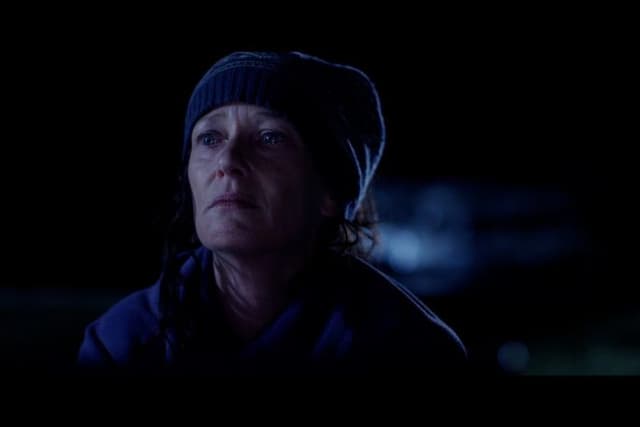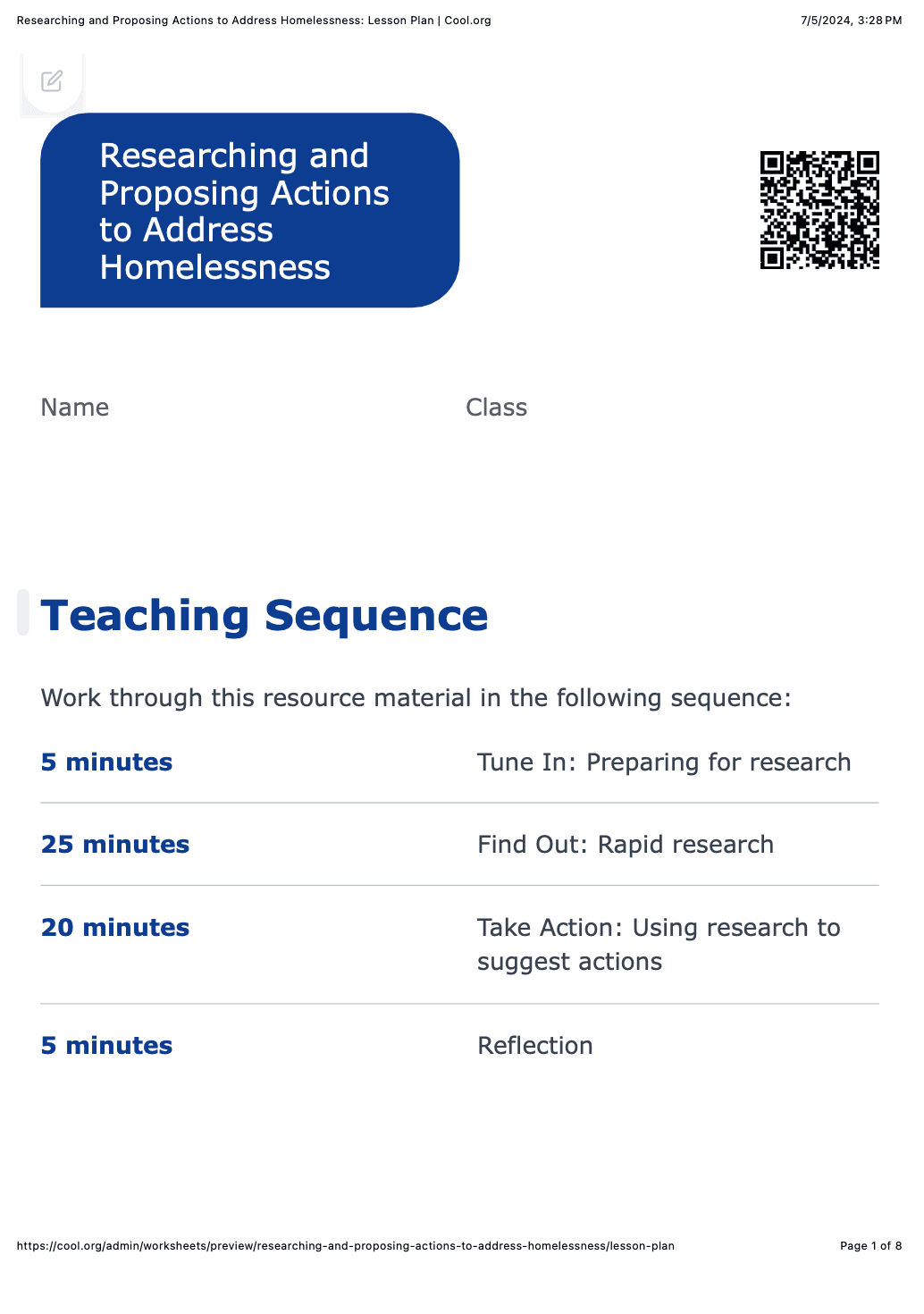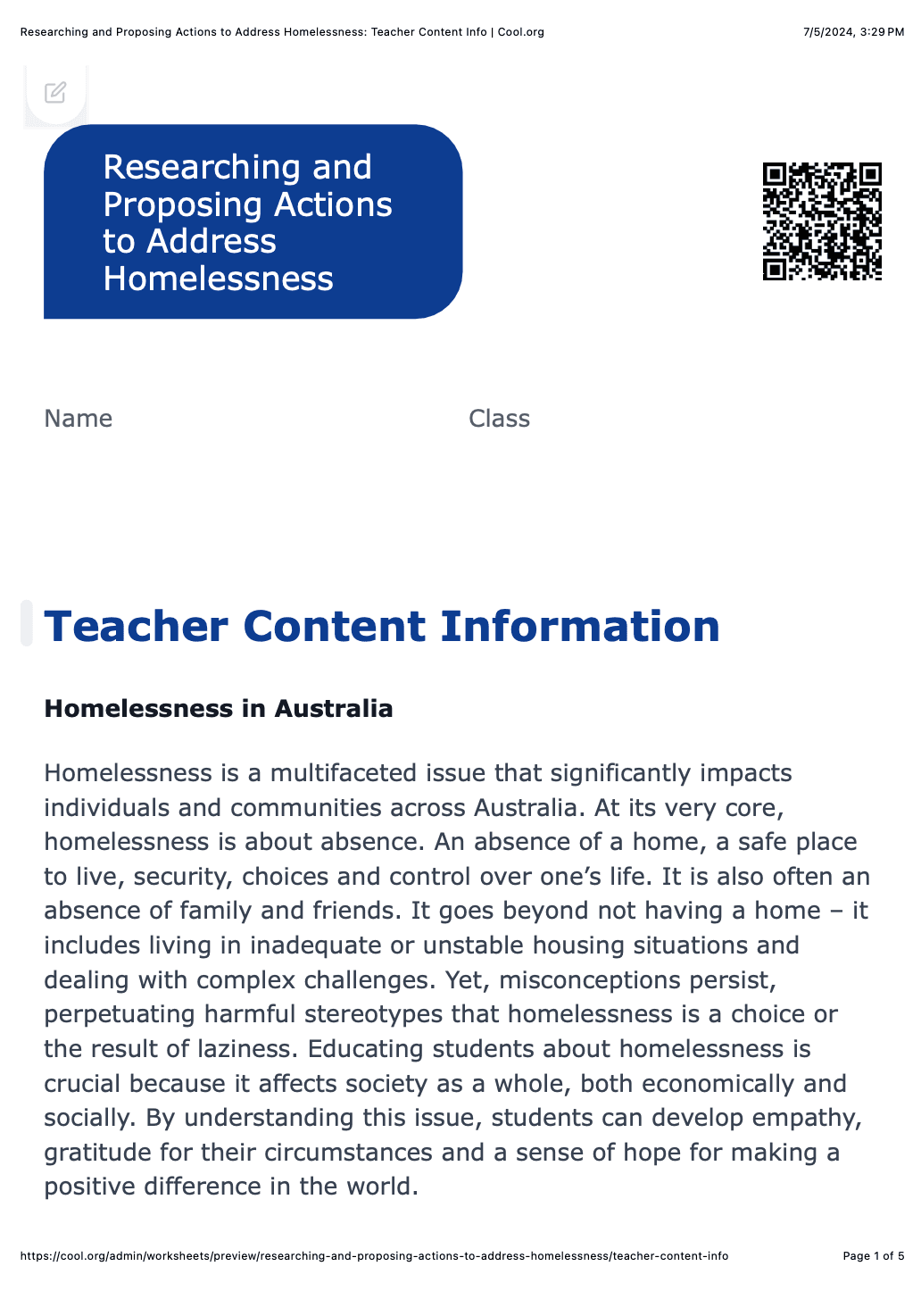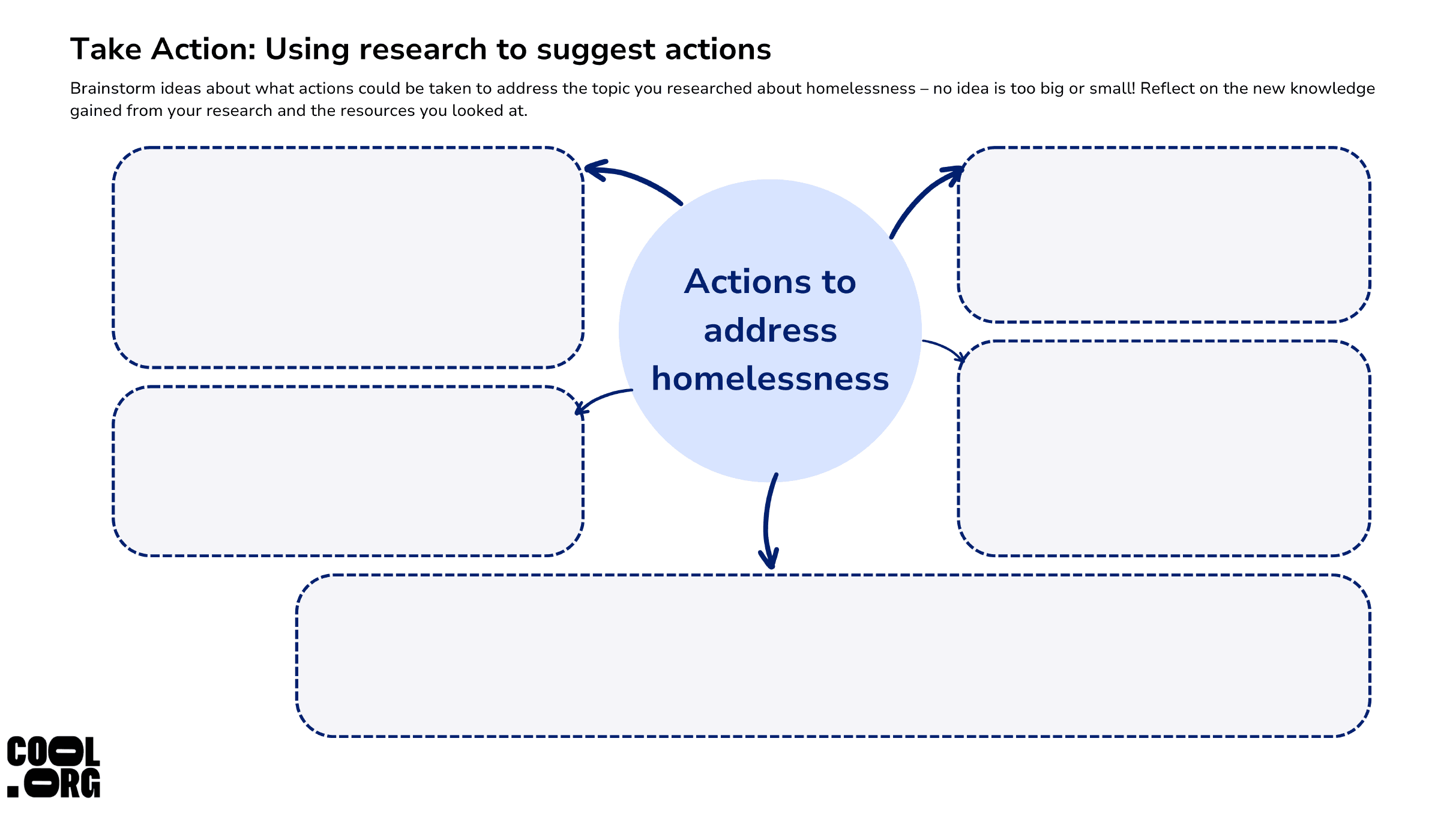Learning intentions:
Students will...
- research an aspect of homelessness to gain a better understanding of this social issue
- identify actions that can be taken to address an aspect of homelessness through creative thinking.
Success criteria:
Students can...
- summarise some key points from research about an aspect of homelessness
- develop ideas and actions to help address an aspect of homelessness.



